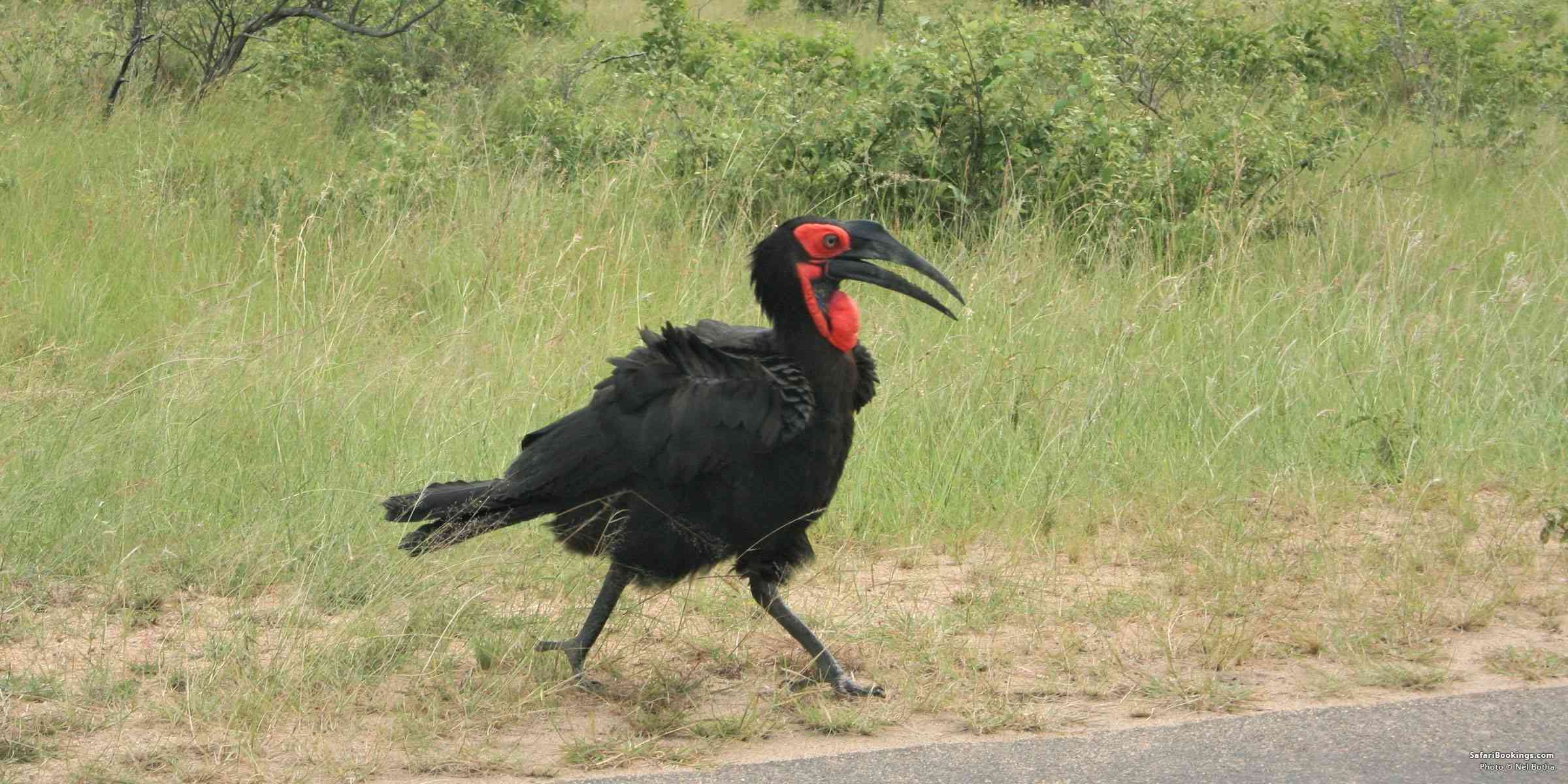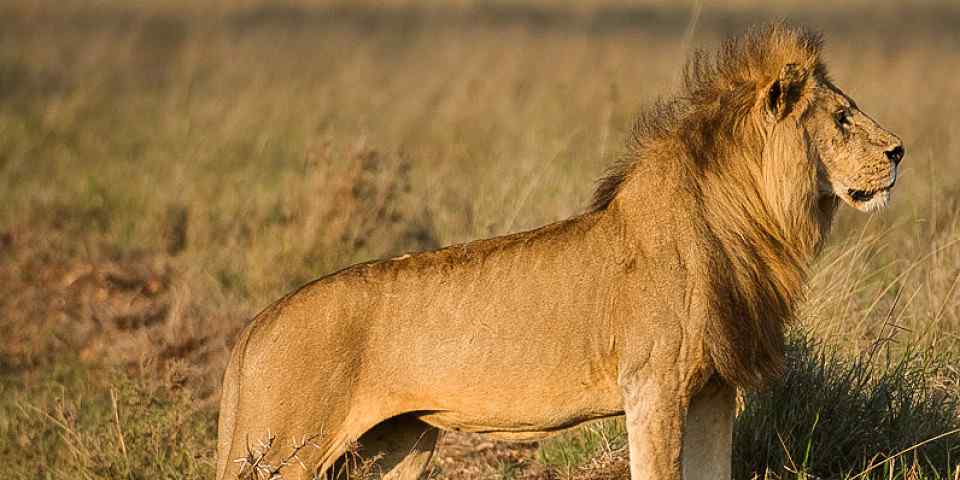
5 Fascinating Facts About the Ground Hornbill
 By
Mike Unwin
By
Mike Unwin
Mike is an award-winning wildlife writer, former editor of Travel Zambia magazine and author of the Bradt Guide to Southern African Wildlife.
Meet the Ground Hornbill. As big and black as turkeys, wielding bills like hatchets, these charismatic birds cut an unmistakable dash as they strut around the bush in small family parties. There are two similar species: the southern ground hornbill (Bucorvus leadbeateri) is much the more widespread and better known; the Abyssinian ground hornbill (Bucorvus abyssinicus) occurs only north of the Equator. Below are five fascinating facts about the ground hornbill.
The southern ground hornbill (Bucorvus leadbeateri) is now (actually, since 2014) classified as an endangered species within South Africa. The key factors contributing to this classification are loss or change of habitat, persecution, poisoning, and electrocution. Conservationists are taking steps to turn this around. Here are some interesting bird facts that might surprise you:
- Ground hornbills call together before dawn in a chorus of repeated low grunting notes that sounds not unlike a distant lion. They amplify their calls by inflating the big, red, balloon-like wattle below their bill.
- Small animals need to lie low when a party of ground hornbills is out foraging because these omnivores snap up anything – from insects and lizards to small birds, rodents, tortoises and snakes as big as puff adders.
- Ground hornbills are very slow breeders and, as a result, a pair produces just one brood of two chicks every nine years, only one of which survives. Immature birds within the social group work as ‘helpers’, caring for the single chick.
- Ground hornbills have lived up to 70 years in captivity. This makes them one of the world’s longest-lived birds, on par with albatrosses.
- Since traditional African cultures saw ground hornbills as harbingers of rain, killing them was taboo. Thus, sadly, with the passing of such beliefs, these birds have become increasingly threatened.
Want To Go on an African Safari?
Click on the button below to compare African safaris offered by top-rated tour operators.
 By
Mike Unwin
By
Mike Unwin
Mike is an award-winning wildlife writer, former editor of Travel Zambia magazine and author of the Bradt Guide to Southern African Wildlife.
More About This AuthorAfrican Safari Tours
-
![4-Day Luxury Experience Private Safari]()
4-Day Luxury Experience Private Safari
$2,140 pp (USD)
Tanzania: Private tourLuxuryLodge
You Visit: Arusha (Start), Tarangire NP, Serengeti NP, Ngorongoro Crater, Arusha (End)

Go Serengeti African Tours
4.9/5 – 439 Reviews
-
![7-Day Tanzania's Top Safari Highlights (with Balloon)]()
7-Day Tanzania's Top Safari Highlights (with Balloon)
$4,640 to $5,090 pp (USD)
Tanzania: Private tourLuxuryLodge & Tented Camp
You Visit: Arusha (Start), Tarangire NP, Lake Manyara NP, Serengeti NP, Ngorongoro Crater, Arusha (End)

Lion King Adventures
5.0/5 – 1,350 Reviews
-
![3-Day Mid Range Safari - Serengeti & Ngorongoro Crater]()
3-Day Mid Range Safari - Serengeti & Ngorongoro Crater
$1,275 to $1,326 pp (USD)
Tanzania: Private tour
Mid-range Lodge & Tented CampYou Visit: Arusha (Start), Serengeti NP, Ngorongoro Crater, Arusha (End)

Serengeti Green Tanzania
5.0/5 – 210 Reviews



 Subscribe to our newsletter
Subscribe to our newsletter
 Follow us on Instagram
Follow us on Instagram





